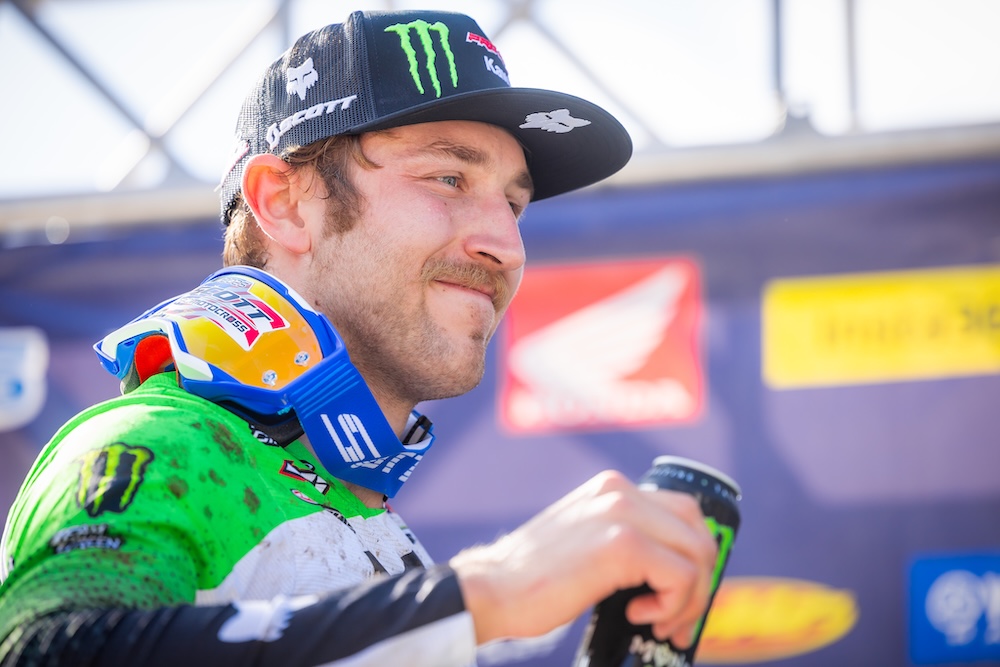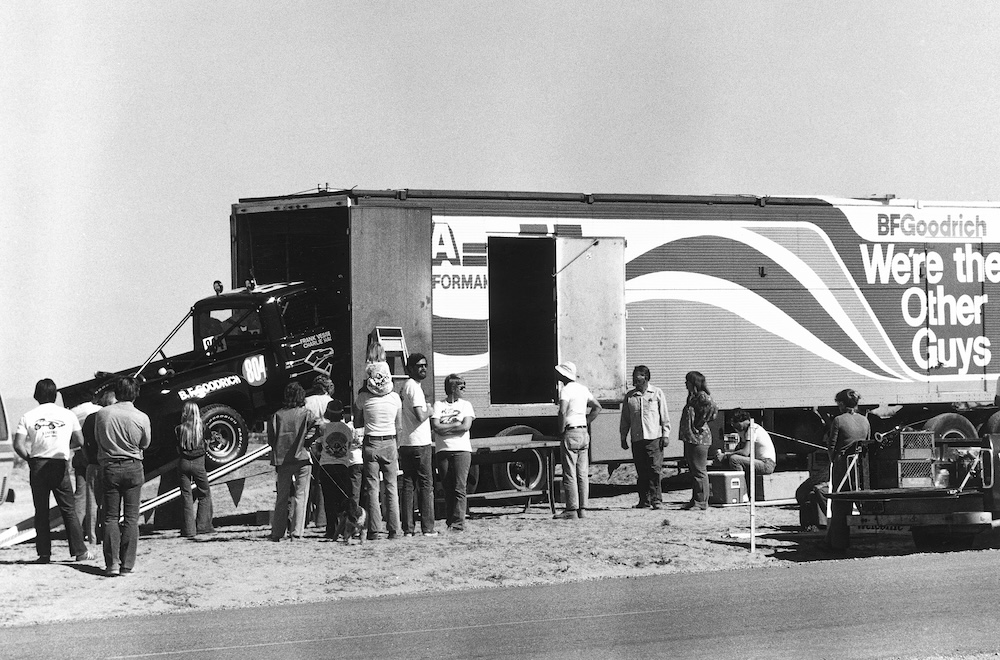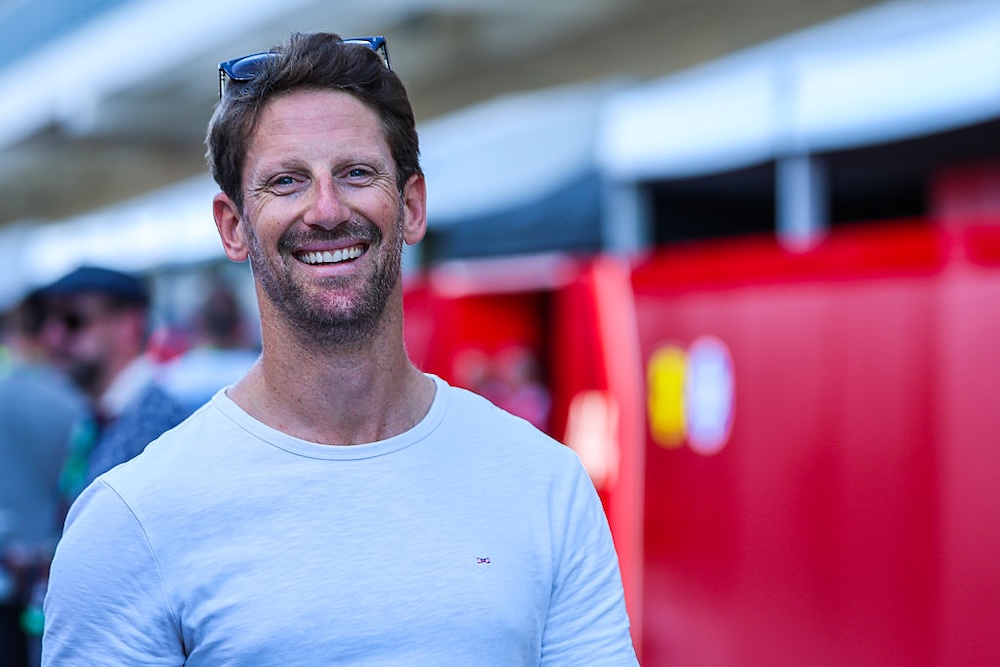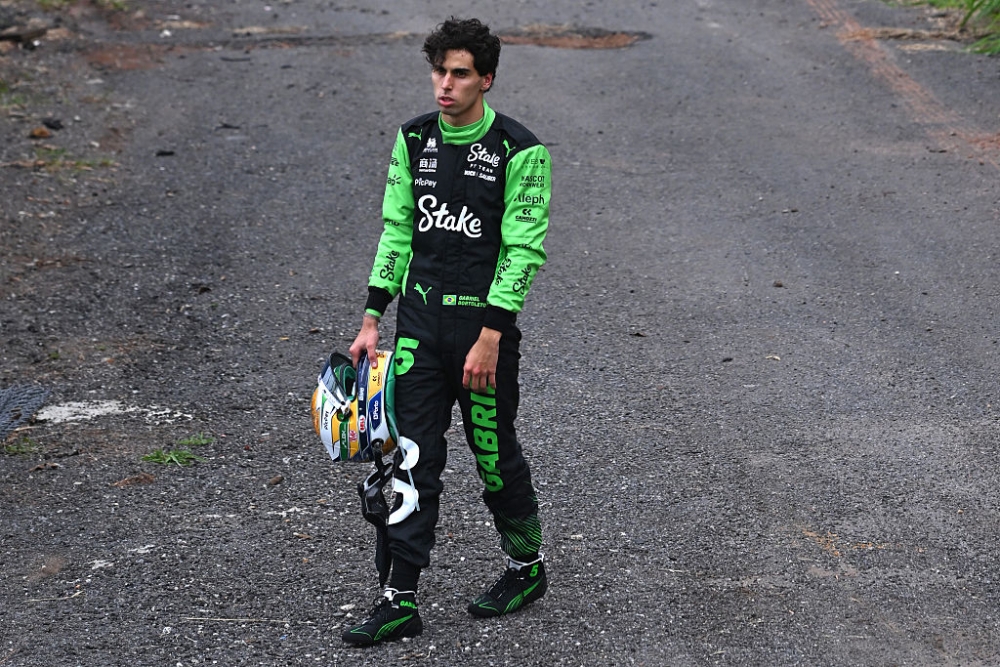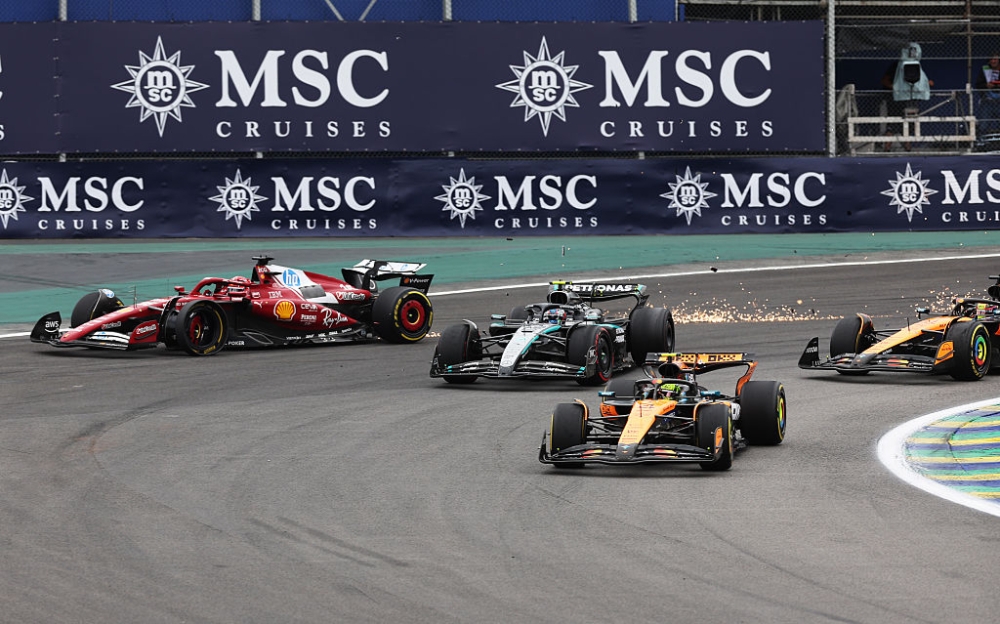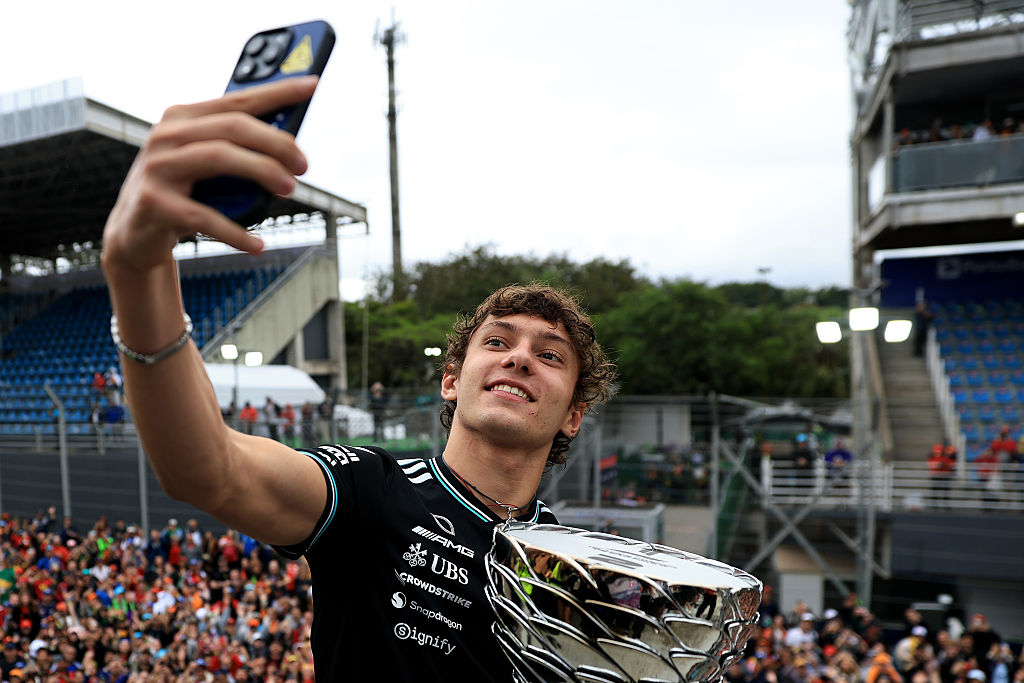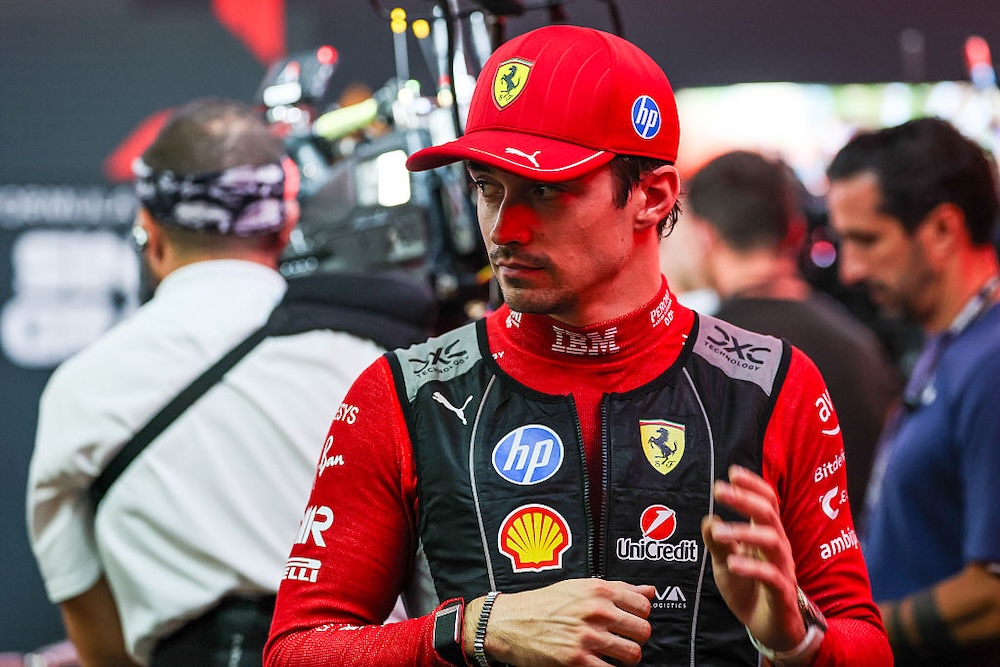
Kym Illman/Getty Images
ShareThis is disabled until you accept Social Networking cookies.
Has Leclerc hitched his wagon to the wrong Prancing Horse?
Charles Leclerc is not happy. No expertise in psychology is required to recognize that, or to understand the reasons why. He recently described himself and teammate Lewis Hamilton as “passengers” in a car they can’t get anything more out of, the last vestiges of hope of salvaging something from a bitterly disappointing season having faded.
But it’s bigger than just 2026 for Charles Leclerc, who can feel the quiet ticking of the clock getting a little louder as his 28th birthday looms. In F1 terms he’s now in middle age, and he’s got there without ever driving a car good enough to fight for the world championship.
There’s no doubt he is capable of doing so. Most drivers on the grid believe they can do that, and they will certainly all say so, but Leclerc has proved it with consistently outstanding performances in machinery that’s sometimes good but never great. Not only has he demonstrated prodigious ability since his early days in karting and continually refined that to the point where he’s rightly regarded as one of the best in F1, but he’s also demonstrated he can take the fight to F1’s current top dog, Max Verstappen.
Remember the 2022 Bahrain Grand Prix, during the brief spell in the first part of the season when the Ferrari looked like it was a genuine title contender, when he outwitted Verstappen in a straight fight for victory late in the race? He’s not always come out on top, but the fact there have periodically been flashpoints where the two have gone head-to-head in which he held his own has long meant a title showdown between the pair seemed their destiny. You wouldn’t blame Leclerc for fearing that he might never get the chance to fight for the title with Verstappen, or anyone else for that matter, because he’s hitched his wagon to the wrong Prancing Horse.
Leclerc first joined Ferrari in F1 for his second season in 2019 after just one hugely impressive season in the midfield with Sauber. He saw off four-time world champion teammate Sebastian Vettel, albeit by then a driver ground down by his own experience of Ferrari underachievement, politics and failure, and despite being pushed hard at times was overall the stronger Ferrari driver during Carlos Sainz’s four years alongside him. He’s also so far seen off Lewis Hamilton comprehensively. That means Ferrari is without a shadow of a doubt his team, and has been for some time.
The question is whether it’s a team you’d really want to spearhead. By the standards of most, Leclerc’s had a successful time there, winning eight races and finishing second in the world championship in 2022. But those are the statistics of a good grand prix driver, and Leclerc is more than that. The evidence is there in his qualifying numbers, which some unfairly use as a stick to beat him with. Of his astonishing tally of 27 pole positions, just five have been converted into victories. Some argue that indicates a qualifying specialist, a driver capable of throwing together spectacular, on-the-limit laps but limited in race conditions. However, that’s not Leclerc. It’s true he’s regarded by many as the quickest over a lap in F1 today and that’s supported by a string of remarkable pole positions – nobody can dance on the razor-thin limit as consistently as he does, not even Verstappen.
There are occasions when this has been the result of an extraordinary lap in a car that’s not the quickest, particularly on street circuits, but often it’s been the consequence of a car that could be the fastest in qualifying trim but didn’t have the race pace to stay at the front. He can dance on the limits of physics, but like all drivers he’s still bound by them and on race day the car regresses to the mean. Yes, he’s had to work at improving aspects of his game such as tire management, but he’s done so well and has built a strong body of work on Sundays.
The jury is still out on whether Leclerc can win a championship against, say, Verstappen in similar machinery, but only insofar as there are always doubts until a driver is in that situation. He’s ticked all the boxes so far, has the respect of his peers and deserves the chance to test himself.
What’s more, as a competitive animal he needs to do so, and that’s what has made this year so tough. Many times this year he’s spoken with regret of the sky-high expectations after Ferrari’s strong 2024 and near-miss in the constructors’ championship that disappeared in the early months of this year. The concerns started to manifest themselves in testing when the Ferrari didn’t look strong, were confirmed by the early struggles and replaced by the hopes that upgrades, notably the rear suspension modifications introduced at Spa in July, would at least allow some good results to be salvaged from 2025.
He admitted during the recent Singapore Grand Prix weekend that when “you don’t even see a progression throughout the year, it’s not easy” and that “it takes a lot of energy” to manage the frustration. Disappointing performances there and in the preceding event in Azerbaijan, where he played a big part in his own struggles by crashing in Q3, appear to have knocked what wind remains out of his sails.
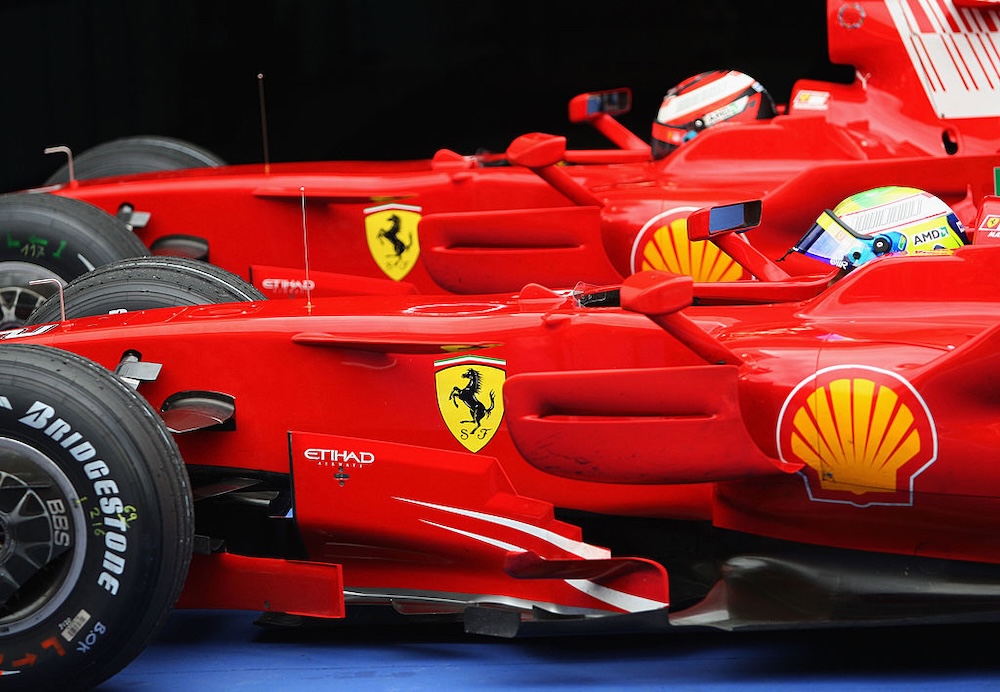
Ferrari's last world title came when it won the constructors' championship with Kimi Raikkonen and Felipe Massa in 2008 (above) and you have to go back another year to land on its last drivers' championship, which came courtesy of Raikkonen. Leclerc would love to be the one to end Maranello's losing streak – but is Ferrari running out of time to give him a car good enough to do so? Mark Thompson/Getty Images
Drivers are all too aware how difficult it is in modern F1 to get yourself into the position to challenge for a drivers’ championship. Leclerc will be glancing enviously at Lando Norris and Oscar Piastri at McLaren, doubtless feeling he’s better than both and deserves that quality of machinery. He’ll be asking himself if Ferrari really can deliver such a car and no doubt trying to trade off his desire to remain with the team he loves for the long haul with knowing he can’t simply leave his career to chance. Ferrari hasn’t won a world championship since its constructors’ triumph back in 2008, a record drought, and Leclerc’s confidence in Fred Vasseur’s revolution will have been shaken by this year. He needs only look at Fernando Alonso for a warning of what happens if you end up in the wrong team.
Alonso’s place in F1 legend as a great is assured, but the numbers don’t do him justice in comparison to the statistics racked up by Lewis Hamilton, Max Verstappen and his old rival Michael Schumacher thanks to his last victory being an astounding 12 years ago. Regardless of whether you blame Alonso for poor decision-making, burning bridges or plain bad luck, it shows how easy it is to freeze yourself out of contention for titles. That Alonso fell out with Ferrari just before it returned to winning ways, which led to 2018 and a car that perhaps could have given him a shot at the championship, is also a warning to be very confident in your judgment if you want to leave Maranello, given its prodigious potential.
So where will Leclerc’s thinking currently stand? Right now, he can’t shape his future until he knows where Ferrari lines up in the 2026 order. He will have an idea of where it might be, but realistically it’s impossible to be sure and it won’t be until the 2026 cars, with their brand-new power units and dramatically overhauled chassis rules, hit the track that conclusions can start to be drawn. Even then, there’s the possibility that performance profiles might be all over the map and may mean it will take some time before a clear pattern emerges.
However, once ’26 has settled down with a small but significant sample set of events, he will know. If Ferrari looks in bad shape, that’s its foundation for the entire rules cycle shaken and Leclerc can start adding more likely fallow years to his age. The exact length of his contract is unclear, but it runs to at least the end of 2028 and will take Leclerc into his early 30s. Ferrari needs to rebuild his confidence in it early in ’26, or surely he is obligated to look elsewhere.
Right now, where he might go is impossible to say. Leclerc can survey the landscape in early 2026 to understand which are the most desirable teams and where there might be an opportunity, but that’s unknowable right now. Every single team in F1 would be interested in him, the question is how the other chess pieces are arranged. Therefore, the question won’t only be should he leave Ferrari, but also where he should go.
Leclerc’s dream will be that Ferrari is the place to be. He’s been on its books since being signed by the Ferrari Driver Academy back in 2016 and dreams of taking his place in legend as a Ferrari world champion. If he does so, it will have a similar impact to Michael Schumacher ending the 20-year drivers’ championship drought when he won the 2000 championship. Right now, this is year 18 of a similar dry spell stretching back to Kimi Raikkonen’s title in ’07. That’s how significant a figure Leclerc could become in Ferrari’s history.
What’s clear is he must make an objective and dispassionate decision. F1 careers are short and if he’s absolutely certain that Ferrari won’t give him the machinery, he not only needs to move for a shot at the title, but also to avoid the risk stagnating as a driver if he stayed in an environment that he’s lost confidence in. The hope will be that he doesn’t have to take this dramatic course of action and that Ferrari can recover next year, rendering 2025 nothing more than a blip. It’s not impossible, as despite the widespread expectation the Mercedes power unit will be strongest, that’s hasn’t yet been proven, while the ’26 car will be the first conceived under the technical leadership of Loic Serra.
One thing is certain: Leclerc will keep performing as best he can in what has, overall, only been the fourth-best car this year despite still being in the hunt for second in the constructors’ championship. And while he’s doing so, he will feel the gentle time pressure almost imperceptibly creeping up in intensity as he awaits what he will still feel with absolute conviction is his destiny of winning the world championship.
He’ll hope the conundrum is solved by Ferrari delivering, but he must be less certain of that happening in the future than he’s ever been.
Topics
ShareThis is disabled until you accept Social Networking cookies.
Edd Straw
Edd Straw is a Formula 1 journalist and broadcaster, and regular contributor to RACER magazine. He started his career in motorsport journalism at Autosport in 2002, reporting on a wide range of international motorsport before covering grand prix racing from 2008, as well as putting in stints as editor and editor-in-chief before moving on at the end of 2019. A familiar face both in the F1 paddock, and watching the cars trackside, his analytical approach has become his trademark, having had the privilege of watching all of the great grand prix drivers and teams of the 21st century in action - as well has having a keen interest in the history of motorsport. He was also once a keen amateur racing driver whose achievements are better measured in enjoyment than silverware.
Read Edd Straw's articles
Latest News
Comments
Disqus is disabled until you accept Social Networking cookies.

